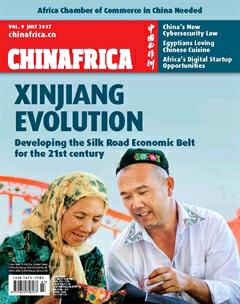A Man Should Stand by His Word
“Keep to your word, be resolute in deed” and “Even four horses cannot take back what you have said”are old sayings circulated among Chinese people for thousands of years. They all express Chinese characteristics regarding honesty and trustworthiness. Over thousands of years of Chinese civilization, Chinese people not only praised the traditional virtues of sincerity and faithfulness, but also carried them out in their daily life.
Keeping a promise is a virtue to Chinese people who know how to conduct themselves and deal with their affairs. Its also Chinese peoples way of dealing with the world. By honesty, we mean being truthful and straightforward. An honest person must be faithful to the facts, should not distort or modify them. At the same time, they should not hide their true opinion, but be frank and forthright, as well as speak clearly. An honest person does not support people who are opportunists and often fawn upon the rich and powerful, trim their sails to the wind, crave greatness and success but shift their responsibility on to others, or employ trickery or deception.
As an ancient civilization, China has always advocated proper manners, and always valued ethical training for the virtues of honesty and faithfulness. The Chinese scholar Xu Shen (58-147) of the Eastern Han Dynasty (25-220), the author of: Analytical Dictionary of Chinese Characters, the first etymological Chinese character dictionary, explained it this simple way: “True is honest.”
Ancient oracle philosophers had many elaborate sayings about good faith. Confucius spoke about good faith many times, for example, “He who is of good faith is trusted by the people,” “From ancient times, death has been the lot of men, but a people without faith cannot stand.”
A Confucian philosopher Xun Zi(313B.C.-238B.C.) declared that, “The good conduct of a nourishing heart is sincerity.” Another philosopher Mo Zi (468B.C.-376B.C.) also stressed sincerity: “Ones wisdom will not be far-reaching whose purpose is not firm. Ones action will not be effective whose promises are not kept.”
Lao Zi, a philosopher of ancient China in the sixth century B.C. and a central figure in Taoism, regarded sincerity as an important guiding principle of human behavior. He said:“Who finds it easy to promise finds it hard to be trusted, who takes things lightly finds things difficult.”
Zhuang Zi, another influential philosopher who lived around fourth century B.C., also placed a high value upon sincerity and said: “By thetruth, I mean purity and sincerity in their highest degrees. He who lacks purity and sincerity cannot move others.”
As the philosopher Han Fei Zi(280B.C.-233B.C.) wrote: “Even the cleverest trick is no match for the power of dull sincerity.” Thus, ancient sages and men of virtue praised sincerity and trust as a sign of moral excellence.
If people want to accomplish anything in life they have to maintain a good reputation. To do this, they must keep their word. Sincerity and keeping ones promise are not only moral principles, but also a philosophy of life and a way of conducting oneself in society. Maintaining good values and acting in good faith lead to the kind of person that will win peoples confidence and their assistance when needed.
A man who stands by his word will experience an even greater gain than by his actual deeds. Sincerity and keeping ones promise are also the foundation for the formation of a natural identification or affinity. People are attracted to individuals who are honest and trustworthy. To some extent, these qualities can also clear away destructive obstacles and straighten out difficult situations.
Nonetheless, with the fast growing economy in recent years, these qualities are largely being ignored by some people who are blinded by greed or seeking instant success and quick benefits. They may gain certain interest for the time being, but it wont last long. The Chinese still hold the belief that“A man should stand by his word.”And they hope to pass that to their descendants to carry this virtue forward.

